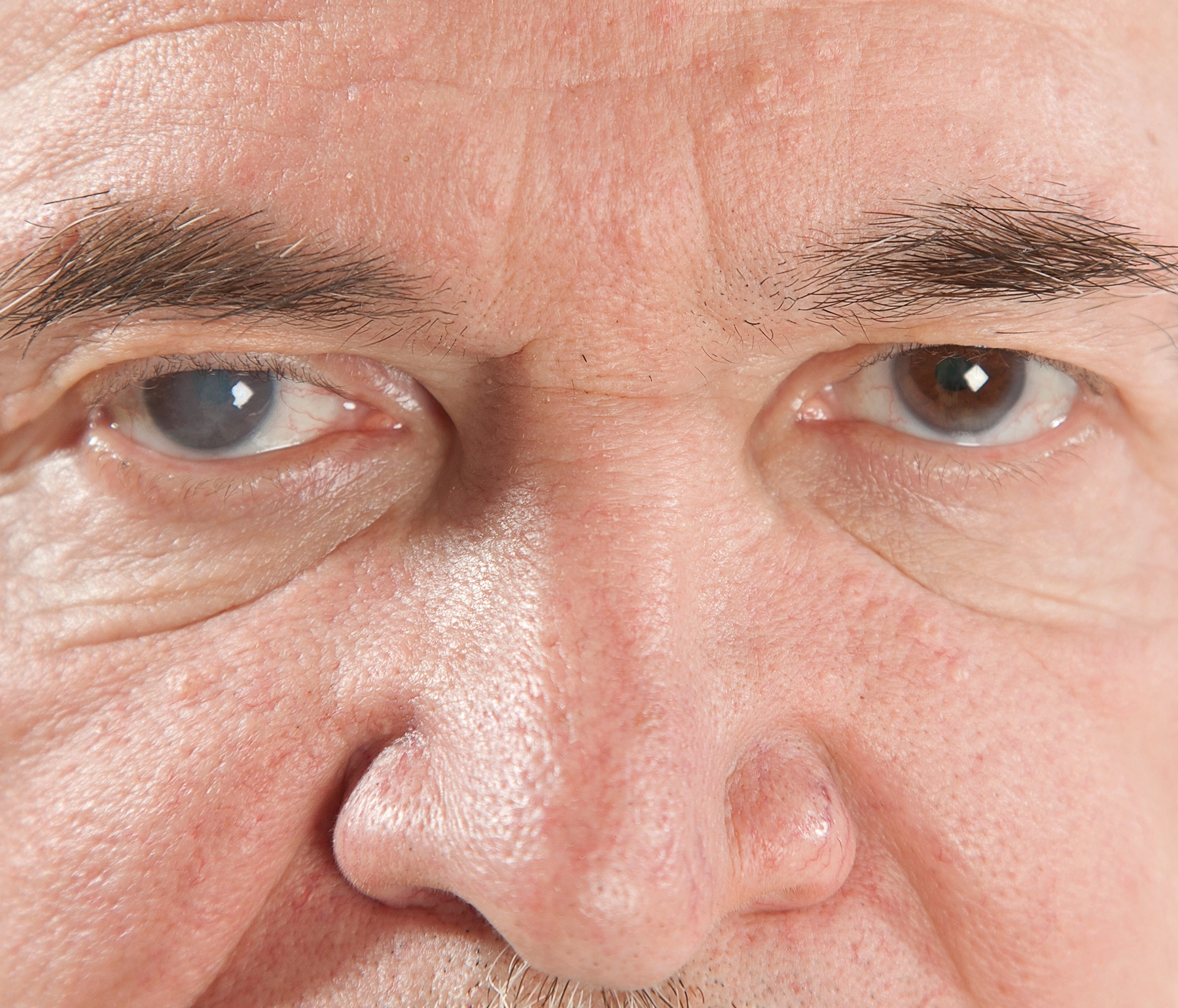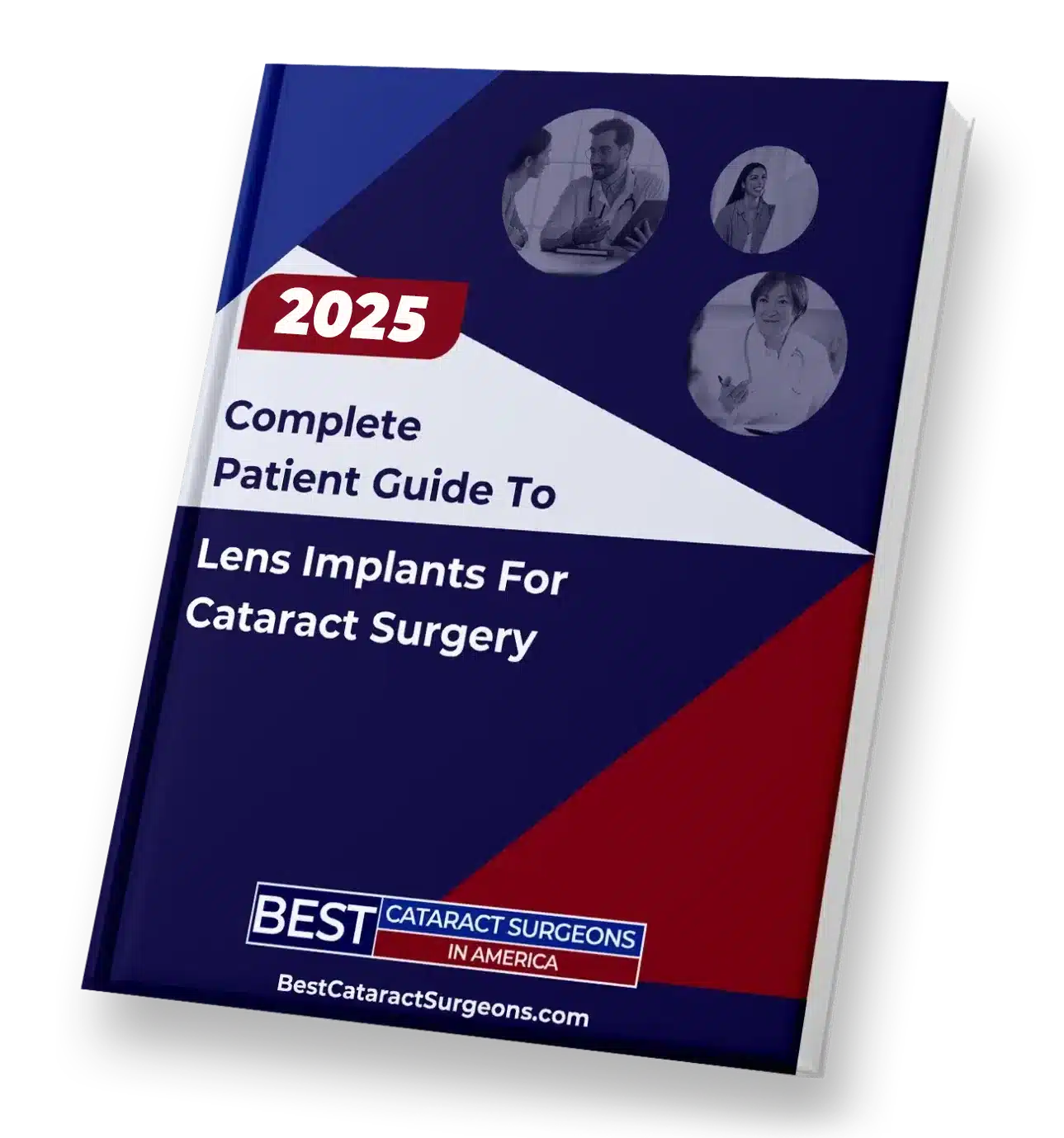A little over a generation ago, cataract surgery was done in the hospital and required an overnight stay. Nowadays, routine cataract surgery takes a few minutes and is done as an outpatient procedure. Many patients notice an improvement in their vision by the very next day.
However, this isn’t always the case.
Not every cataract is routine. Complications of cataract surgery have become much less common, but they still can occur. Some patients don’t have access to care, or for other reasons delay their treatment. When cataract surgery is delayed, the risks can increase, and the healing time required takes longer. There are steps that can result in faster healing time, such as having laser assisted cataract surgery, in some cases.
In this article, we’ll review some of the causes of blurry vision after cataract surgery. The good news, is that many of these causes of blurry vision get better or are treatable.
Blurry Vision In the Days After Surgery
There are a few common things that will cause your vision to be blurry right after surgery. After every surgery, there is swelling and inflammation.
Swelling / Corneal Edema
Whether you have surgery on your knee, or your hip, or you cataract, there will be swelling and inflammation. After cataract surgery this swelling collects in the cornea.
The cornea is the clear window on the outside of the eye. When swelling collects in the cornea, it becomes cloudy. It’s like looking through a cloudy window. As the swelling goes away your vision will clear up.

In some routine cataracts, much of the swelling is gone in the first few days. In other cases, in which the cataracts are more advanced, or in patients with certain disorders of their cornea, the cornea swelling can last weeks or longer. These cases in which the swelling persists for weeks or months are uncommon.
Inflammation
Just like swelling, there is always inflammation after cataract surgery. Typically, patients are put on anti-inflammatory eye drops after their surgery to reduce inflammation. Reducing inflammation can help reduce the corneal swelling, which will lead to faster healing and recovery of vision.
Blurry Vision Weeks After Cataract Surgery
After the initial swelling and inflammation resolve, there are other things that can cause blurry vision. Here are a few of the more common ones.
Residual Refractive Error
In modern cataract surgery, you may decide to fix your prescription and astigmatism so that you have freedom from glasses after surgery.
Measurements are taken before your surgery to get the lens implant as accurate as possible. However, these measurements aren’t perfect. Sometimes, despite the best technology, there is still some leftover prescription.
There are a variety of ways to correct this residual prescription, such as glasses, contacts, LASIK, or changing the lens implant.
Dry Eyes
Long term dry eyes are uncommon after cataract surgery. However, it can be somewhat common during the early healing period. Every patient leaves surgery with a scratch on the surface of the eye, which may feel scratchy for a few days.
Sometimes the eye drops that are prescribed after surgery can irritate the eyes or cause dryness. These eye drops are needed to reduce inflammation and the risk of infection. Typically, once the eye drops are stopped, any dry eye symptoms will return to baseline.
Artificial tears during the first few weeks after surgery are often fine to help with any symptoms of discomfort from dry eyes. Discuss with your surgery, and be sure to space them out by a few minutes so they don’t wash out any of your prescription drops.
Macular Edema
Macular edema refers to swelling in the center of the retina, which is called the macula. This typically occurs 4-8 weeks after cataract surgery. A typical history of macular edema after cataract surgery would be a patient who is doing great and seeing well during weeks 2-4 after surgery, but then notices that the vision starts getting fuzzy.
Patients with diabetes who have cataract surgery are at greater risk for having macular edema after surgery, especially if they have diabetic retinal disease.
Any changes in vision for the worse after cataract surgery should be discussed with your eye doctor.
Macular edema after cataract surgery is treatable with anti-inflammatory eye drops, which almost always makes it go away.

Blurry Vision Months to Years After Cataract Surgery
Once you’ve made it past a few months after your surgery, there is something called a posterior capsular opacification that can occur. It is uncommon for there to be other causes of blurry vision related to your lens implants this long after surgery. Typically, except for very rare situations, if your lens implant is in good position, it usually stays there and doesn’t require maintenance for the rest of your life.
Posterior Capsular Opacification
This is also known as a “secondary cataract”. Don’t worry… your cataract didn’t grow back.
Rather, there are microscopic cells that are always left behind during surgery, that over months to years can grow behind the lens implant. These cells can cause a film to form behind the lens implant, or the capsule behind the implant can become cloudy.
This is a very common cause of blurry vision months to years after surgery, and it does not require surgery to fix. However, the symptoms of a secondary cataract are very similar to the symptoms of your original cataracts.
Instead, a simple laser procedure, which takes about 30 seconds, and is completely painless, will clear up this film. Once the film is treated, it does not grow back.
Uncommon Causes of Blurry Vision
Let’s review a few of the less common causes of blurry vision after cataract surgery.
Infection
Infection is rare in modern cataract surgery. Infection inside the eye, called endophthalmitis, can occur in the first week or two after cataract surgery. It is associated with severe pain, red eye, and vision loss. If you have these symptoms, contact your doctor immediately.
Dislocated lens implant
This is so uncommon, it’s almost not worth mentioning. In routine cataract surgery, a properly positioned lens implant is very stable. However, it is possible in some patients for the lens implant to become dislocated over time. Most commonly this is related to a history of trauma to the eye, or a condition called “pseudoexfoliation”, in which the support structures for the lens implant are irregular.
Toric lens implants also have the ability to rotate. It is uncommon for them to rotate significantly in the months after surgery. This is not the same as the lens being dislocated but is something that is possible to result in blurry vision after cataract surgery.
Summary
We hope you found this list of causes of blurry vision after surgery informative. If you are having blurry vision symptoms, we recommend you discuss these symptoms with your doctor.








